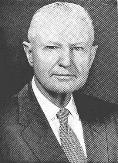 |
|
|
 |
|
|
Stress Found to Weaken
Resistance to Illness
Australian Scientists Find
Proof that Stress Makes You sick
By Shankar Vedantam
Washington Post Staff Writer
Monday, December 22, 2003; Page A12
Scientists are gaining new insights into the role of temperament
in making some people
vulnerable to physical disease through studies exploring
how stress influences the
immune system, weakening disease-fighting cells and creating
fertile environments for
pathogens.
This month, a carefully done study showed that shy men
have much
less resistance to the AIDS virus than extroverted men
and benefit far less from
treatment with antiretroviral drugs. It is the first
study to demonstrate through
laboratory tests a connection between being introverted
and the course of AIDS in
individuals, researchers said.
Such studies are sketching in the details behind the growing
awareness that the
workings of the body and mind cannot be neatly compartmentalized
into the
departments and disciplines taught in medical school.
As a result, paying attention to
the emotional state of patients with infectious and chronic
diseases is increasingly
more than a matter of good bedside manner; it is becoming
an essential part of
treatment.
Although the connection between emotion and disease has
long been suspected --
physicians as early as the 2nd century A.D. observed
a link between "melancholy"
and physical illness -- researchers are finally pinpointing
networks of biological
systems that connect temperament with the progression
of illness. Cascades of
complex chemical signals flow through pathways from the
brain to the body and back,
often triggering "fight or flight" responses in the short
term but decreasing resistance to
illness in the long run. Some signals speed up heart
rate; others burn muscle and bone.
Some changes make cells more vulnerable to viruses.
The consequences can be dramatic. In the new study, HIV-infected
men who were
introverted, reserved and kept to themselves had nearly
eight times as many viral
particles in their blood compared with outgoing men.
After treatment with
antiretroviral drugs for as many as 18 months, the viral
load among extroverted men
fell 162 fold. Among shy men, the drop was only 20 fold,
said lead author Steve Cole
at the AIDS Institute of the University of California
at Los Angeles.
"There is a link between psychological profile and poorer
response to HIV, and
maybe even a number of other viral diseases," agreed
Anthony Fauci, director of the
National Institute of Allergy and Infectious Diseases,
the federal government's lead
research center in the fight against AIDS.
Other research has shown similar connections between mental
disorders such as
depression and AIDS, osteoporosis, even cancer. A study
of 5,000 people with
depression showed they had twice the risk of developing
cancer compared with
people without the mental disorder, said David Spiegel,
a professor of psychiatry at
Stanford University School of Medicine. And Philip Gold,
chief of the clinical
neuroendocrinology branch at the National Institute of
Mental Health, found that
pre-menopausal women who were depressed had a higher
rate of bone loss and a
two- to three-fold higher risk of osteoporosis compared
with other women.
The UCLA study, published in the journal Biological Psychiatry,
has offered
important clues into the physiological pathways through
which stress influences the
body, which could soon suggest targets for treatment
to combat its effects.
"People who have the shy, sensitive temperament seem to
be more prone to having
sympathetic nervous system responses," Cole said in an
interview, referring to the part
of the nervous system that causes accelerated heart rate
and other unconscious
changes. "They are more stressed by lots of things, including
contact with unfamiliar
people."
In shy people, the nervous systems may be more likely
to produce a stress reaction
during social interactions -- so they maintain their
internal stress balance by limiting
contact with other people.
Previous work had shown that AIDS progresses more rapidly
in gay men who were
in the closet, compared with those who were "out." Initially,
Cole said, scientists
speculated that the hiding and secrecy raised the stress
level and made them
vulnerable. But increasingly, he said, scientists think
of being in the closet as a marker
-- rather than a cause -- of poor outcomes. Because shy
people are more sensitive to
humiliation, rejection and the opinions of others, shyness
could be the reason some
gay men with HIV stay in the closet as well as have worse
outcomes with AIDS.
Fauci agreed the research was promising but cautioned
that the connections between
the neurological and immune system are extremely complex,
and no single mechanism
is likely to provide the entire answer.
Cole said a neurotransmitter called norepinephrine that
is involved in stress reactions
could be the link between social inhibition and worse
prognosis in AIDS.
"It's squirted out of one neuron and is received by another
neuron," Cole said. "This
happens with such intensity that norepinephrine spills
into the blood. That changes
how your heart works. If we infect a cell with this,
the virus grows 10-fold faster."
The next step would be to examine whether blocking norepinephrine
affects the AIDS
outcome, Cole said. Common heart medications called beta-blockers
can keep the
body from responding to the neurotransmitter.
"The nervous system communicates with the immune system,"
agreed Steven Douglas,
chief immunologist at the Children's Hospital of Philadelphia,
who has studied another
neurotransmitter, Substance P, that appears to play a
similar role linking depression
with HIV infection. "That's what is so exciting."
Scientists are far from understanding all the links in
the bewildering number of
chemicals that establish feedback loops between the body
and the brain, but teams of
researchers at the intersection of neurology, immunology
and endocrinology are
working to chart all the pathways and signals.
Gold noted that stress is a normal response to threatening
situations that has been
learned through evolution -- stress forces the body to
choose short-term performance
over long-term health.
"It is not good to be lackadaisical if you are a rat being
chased by a cat," he said.
"There is a lot of circuitry in the brain that is organized
to promote anxiety."
After the emergency is over, most people's internal chemical
balance downshifts into a
more sedate state. But in some people, Gold said, things
don't scale down: "You are
ready for stress, you are ready to bleed, you increase
your glucose. That is not a
good state to stay in for months or years. The bone breaks
down; you get heart
disease."
Gold said an important conclusion is that people with
emotional disorders should be
regularly monitored for osteoporosis and heart disease.
And treating mental disorders,
he said, could be a definite step toward slowing -- even
preventing -- physical
disease.
About
Lugol's Solution of Iodine
|
|
 |
|
|
 |